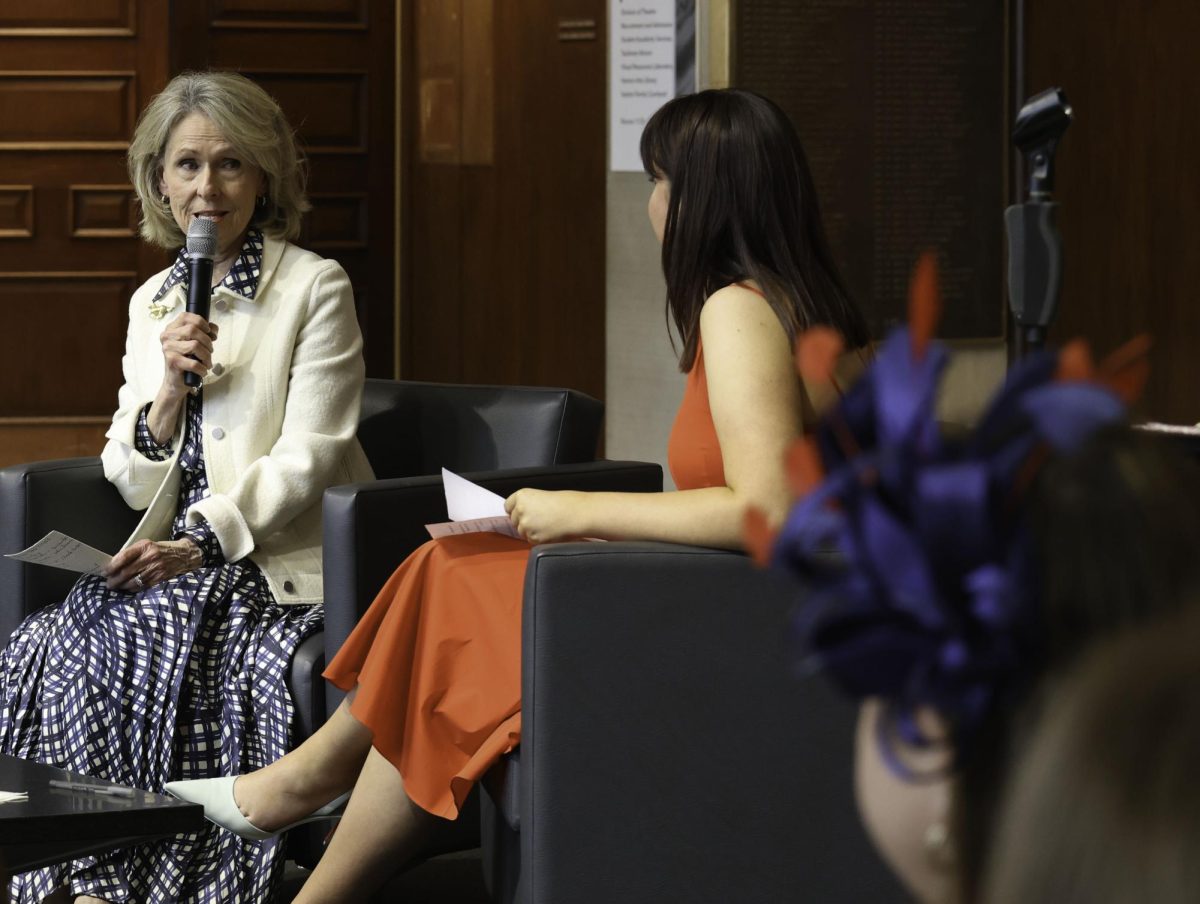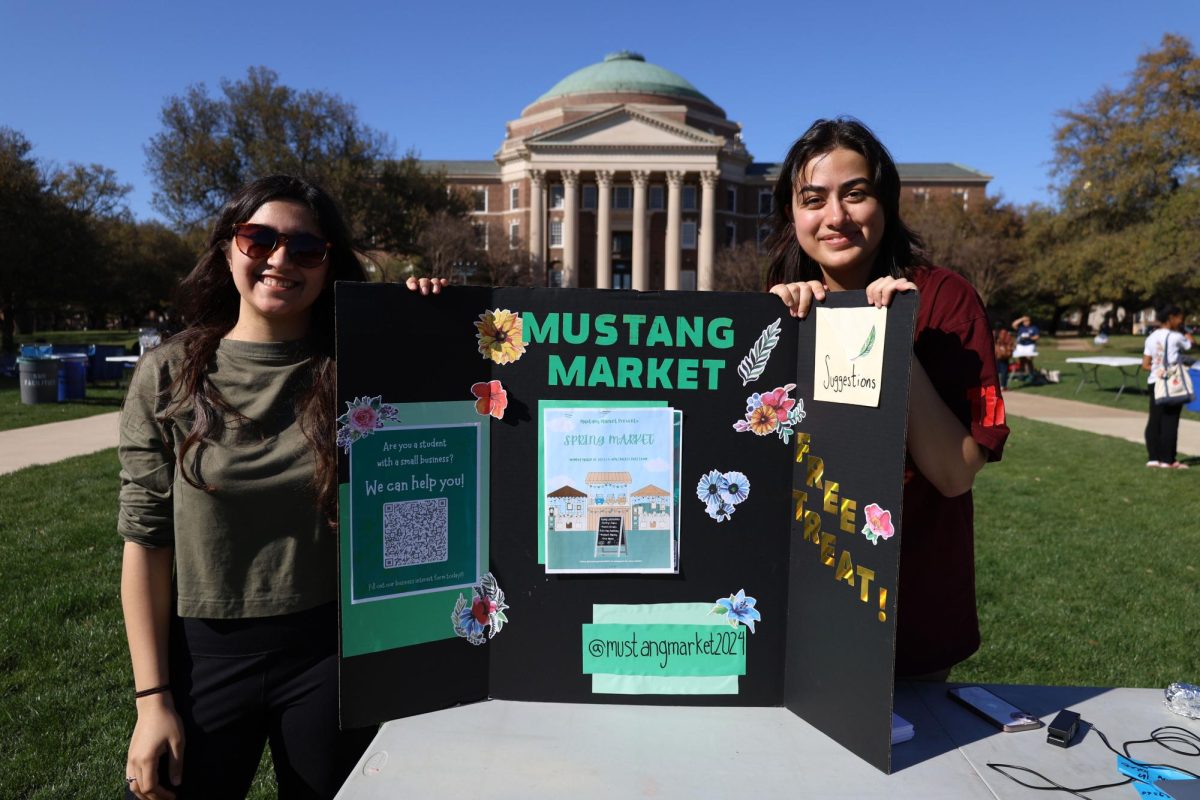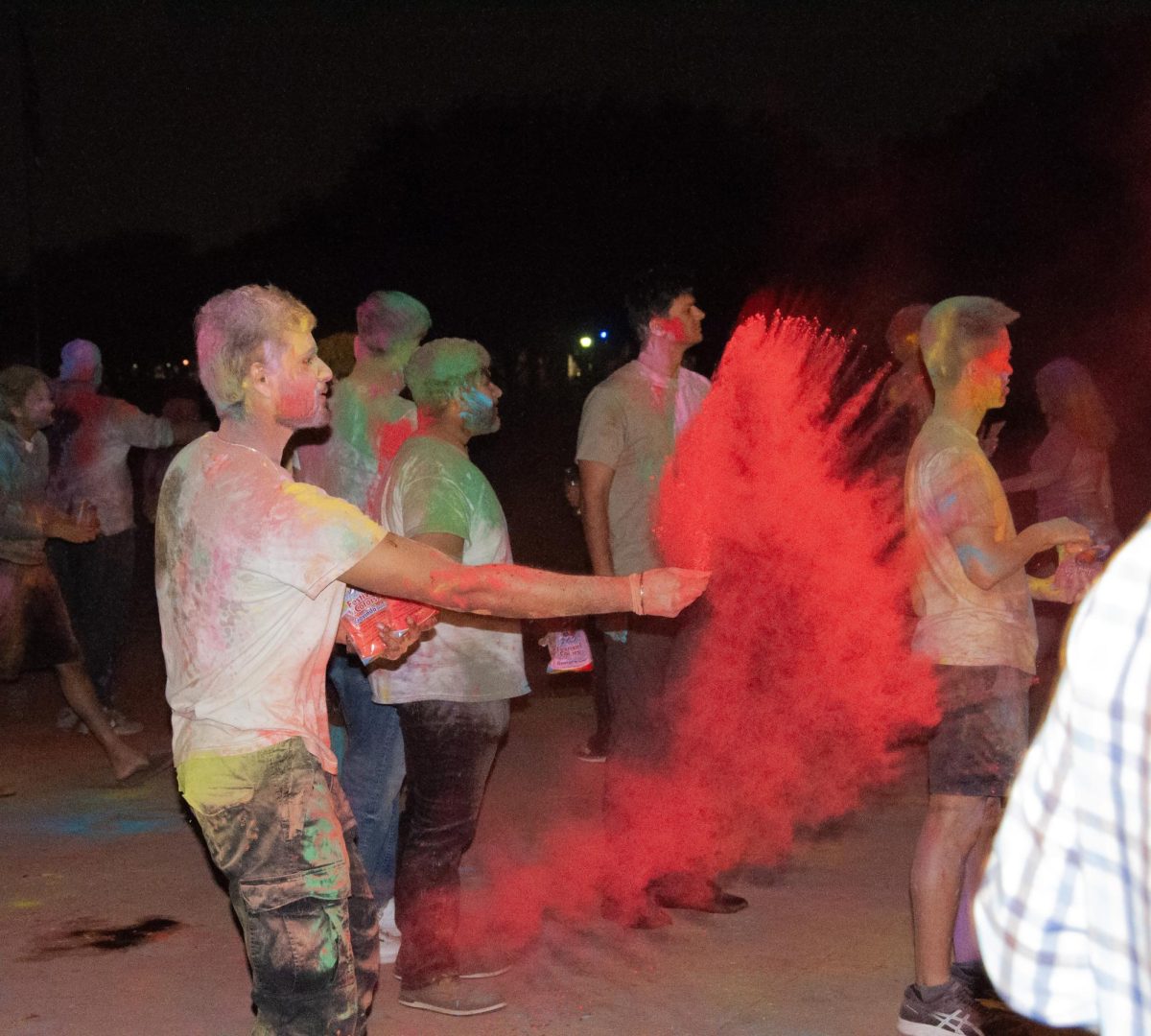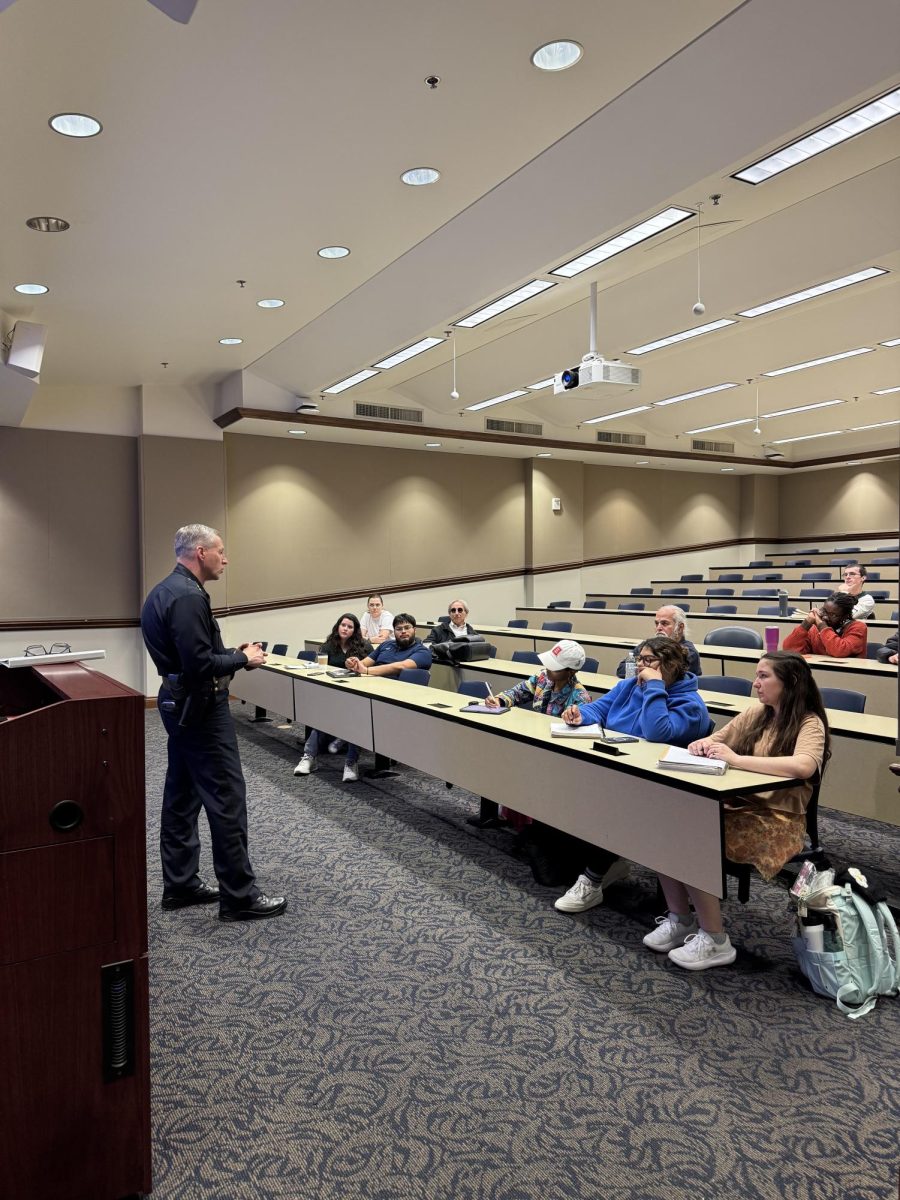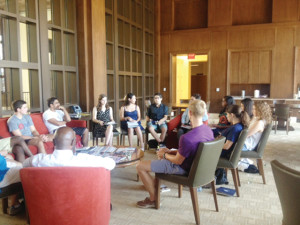
A group of ten incoming freshman honors scholars, accompanied by two upperclassmen scholars, attended a unique common reading discussion Sunday at the Bush Institute. The roundtable-style dialogue was led by Dr. Eric Bing, a Senior Fellow and Director for the Bush Institute’s Global Health Initiative, and Patrick Kobler, a program coordinator for Bush Institute’s Education Reform Initiative and a graduate of SMU.
The overarching theme of the afternoon drew ties between leadership and choice as seen in the 2013 common reading book, “The Other Wes Moore,” and opportunities for the same skills in the students’ own lives.
In speaking to the students, Bing opened the discussion to “what influenced the path that brought [each one of them] here” to SMU. The conversation was then able to transition from the personal retrospective to its application within the context of the book and the upcoming four years.
“There’s a number of things that are recurring in our lives and are also recurring in the book that either keep us on the path of being a leader or not,” Bing said.
The leadership quality–something Bing said “all [SMU] students” possess–was partly defined as “taking a chance [and] moving beyond [a person’s] comfort zone.”
“It’s not just talking about it, it’s doing something,” Bing said.
Kobler used his own experience as former SMU Student Body President to identify the importance of setting goals to stay in line with and accelerate leadership.
“I set goals the first day I walked into SMU for what I wanted to do,” Kobler shared with the group. “You are here and the choices and opportunities you are going to have are world-class, so take advantage of that.”
The scholars attributed many of the influences on their own choices and goals to stem from a number of experiences, ranging from the engagement in their own communities to one’s perspective on any given situation.
Preparing to begin their college journey the following day, the students articulated some of their specific goals, as well as the decisions that those goals may require. Kobler spoke to the reciprocal relationship they will experience between themselves and their university.
“By being given this opportunity to come to SMU, a lot is expected from you as well,” Kobler said.
Bing explained that while there will be clear tests of the students’ character and abilities, these tests have been influencing them throughout their entire lives, and will continue
after graduation.
“You have made choices during these tests that got you here,” Bing said.
As for the tests after college, Bing explained a person’s “responses [to those tests] are what’s going to make the big difference,” regardless of the perceived weight of the response.
“Even simple things end up predicting not-so-simple things, and those not-so-simple things end up predicting the future,” Bing said.
“What we really hope to do is get [students] to think about these really simple things and then perhaps get them to commit to [making these
conscious choices].”




